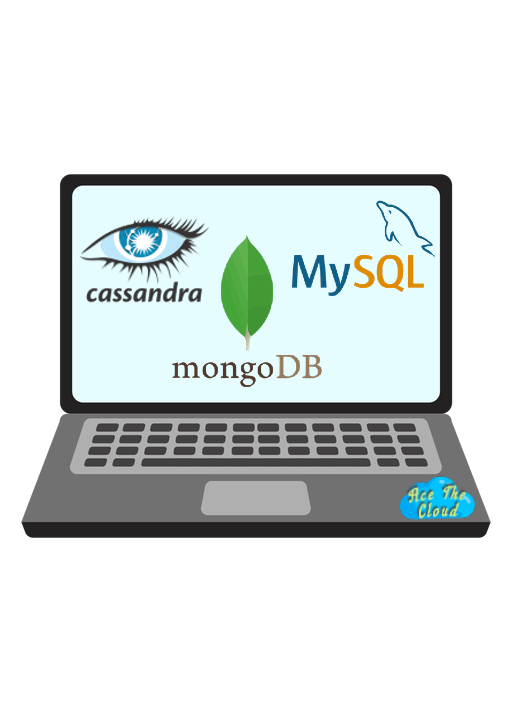



When choosing between Cassandra, MongoDB, and MySQL, it’s important to consider the specific requirements of your project and how each database management system (DBMS) meets those needs.
Here are some points to consider when deciding which DBMS to use:
➜ Data model : Cassandra and MongoDB are both NoSQL databases, which means they use a non-relational data model. This can be beneficial for handling large amounts of unstructured data, or for storing data with complex relationships. MySQL is a relational database, which means it stores data in tables with well-defined relationships between them. If you have structured data that fits well into a table-based model, MySQL might be a good choice.
➜ Scalability : Both Cassandra and MongoDB are designed to scale horizontally, which means they can handle large amounts of data and traffic by adding more machines to the database cluster. MySQL can also scale horizontally, but it may require more complex setup and maintenance.
➜ Querying : Cassandra has a powerful query language called CQL (Cassandra Query Language), which is similar to SQL. However, Cassandra is optimized for fast writes and efficient data retrieval, rather than complex querying. MongoDB has a flexible query language that allows you to search for documents based on their contents. MySQL has a robust and well-established query language called SQL, which is widely used and supported by many tools and libraries.
➜ Transactions : MySQL supports transactions, which allow you to group multiple SQL statements into a single unit of work that either succeeds or fails as a whole. Cassandra and MongoDB do not support transactions in the same way as MySQL. However, Cassandra has a feature called “lightweight transactions” that allows you to perform atomic updates on a single row. MongoDB has a “two-phase commit” feature that can be used to coordinate transactions across multiple database servers, but it is not as fully-featured as MySQL’s transactions.
Cassandra
The Advantages of Cassandra
➜ Decentralization : Unlike other systems, Cassandra does not have a single point of failure. Each node handles the requests in the same way. Hence, if any node fails, data can be easily retrieved from the remaining nodes. Thus, excellent availability is guaranteed.
➜ Data storage flexibility : Cassandra allows you to store structured, semi-structured, and unstructured data.
➜ Data distribution flexibility : Cassandra may be set up to use several data centers if you like. This makes it easier to distribute data.
➜ Performance : If there are many write requests, Cassandra can handle them quickly and efficiently without affecting the read requests.
➜ Scalability : As data and demands increase, you may quickly add extra hardware to meet those requirements. As a result of this horizontal scalability, you don’t have to shut down the database or make any substantial modifications. Cassandra’s linear scalability assures rapid responsiveness.
➜ Ease of use : CQL (Cassandra Query Language) is an alternative to SQL that Cassandra offers. Use this simple interface to connect to Cassandra.
The Disadvantages of Cassandra
➜ Lacks the defining features of RDBMS : There is no relational database management system (RDBMS) in Apache Cassandra. Referential integrity, JOINS, and subqueries like GROUP BY and ORDER BY are not supported by Cassandra.
➜ Duplication of data : When designing a database using Cassandra, the data is modeled on predicted queries, whereas in an RDBMS, it’s completely different. Thus the data can be duplicated in Cassandra.
➜ READ operations can be slow : For WRITE operations, Cassandra is incredibly fast. There is a risk of delay if there are too many READ requests sent out.
➜ Cannot support aggregates : If there are too many aggregate operations Cassandra cannot handle that. Limited querying capabilities: Only a restricted number of queries are available in Cassandra for data retrieval purposes.
| |
Refer Official Documentation to run Apache Cassandra on Azure https://learn.microsoft.com/en-us/azure/architecture/best-practices/cassandra
MongoDB
The Advantages of MongoDB
➜ Flexibility : MongoDB has no schemas. Separate documents allow you to store any type of data.
➜ Sharding : MongoDB supports sharding, which is an effective approach for splitting data into smaller chunks. Data sets of any size can be stored using this technique. You can also divide them over many servers.
➜ Speed : The ability to index documents in MongoDB allows faster document access, one of MongoDB’s most important advantages.
➜ Availability : GridFS (Grid File System) is a MongoDB-based file system. It has several helpful features, such as load balancing, replication, and so on. It ensures high availability using these features.
➜ Scalability : As far as scalability is concerned, MongoDB provides horizontal scaling. In this way, you may divide big datasets over several servers.
➜ Querying capabilities : MongoDB has powerful querying capabilities. Ad-hoc queries are supported by the system.
The Disadvantages of MongoDB
➜ Transactional support : Are you developing an application that relies on them? Using transactions, do you plan to change several documents or collections at once? MongoDB does not allow this, and you may encounter corrupt data due to using this method.
➜ Immature and inadequate “Join” capabilities : This is currently being worked on by developers striving to improve MongoDB. To implement “Joins”, you must create your own code, and it might negatively affect speed.
➜ A high degree of memory usage : MongoDB’s poor capability for “joins” results in significant memory consumption. Redundancy is created as a result of this. Requires high expertise: To properly deploy indexes, you’ll need the right kind of expertise. As a result, performance might suffer.
➜ Duplication of data : Since MongoDB is not a relational database management system (Relational Database Management System), duplication of data is caused by a lack of well-defined relationships in the database.
| |
Refer Official Documentation to run Apache Cassandra on Azure https://learn.microsoft.com/en-us/azure/cosmos-db/mongodb/
MYSQL
The Advantages of MySQL
➜ Free installation
➜ Simple syntax and mild complexity
➜ Cloud-compatible
The Disadvantages of MySQL
➜ Scalability challenges
➜ Partial open source
➜ Limited compliance with SQL standards
| |
Refer Official Documentation to run Apache Cassandra on Azure https://learn.microsoft.com/en-in/azure/mysql/single-server/overview
